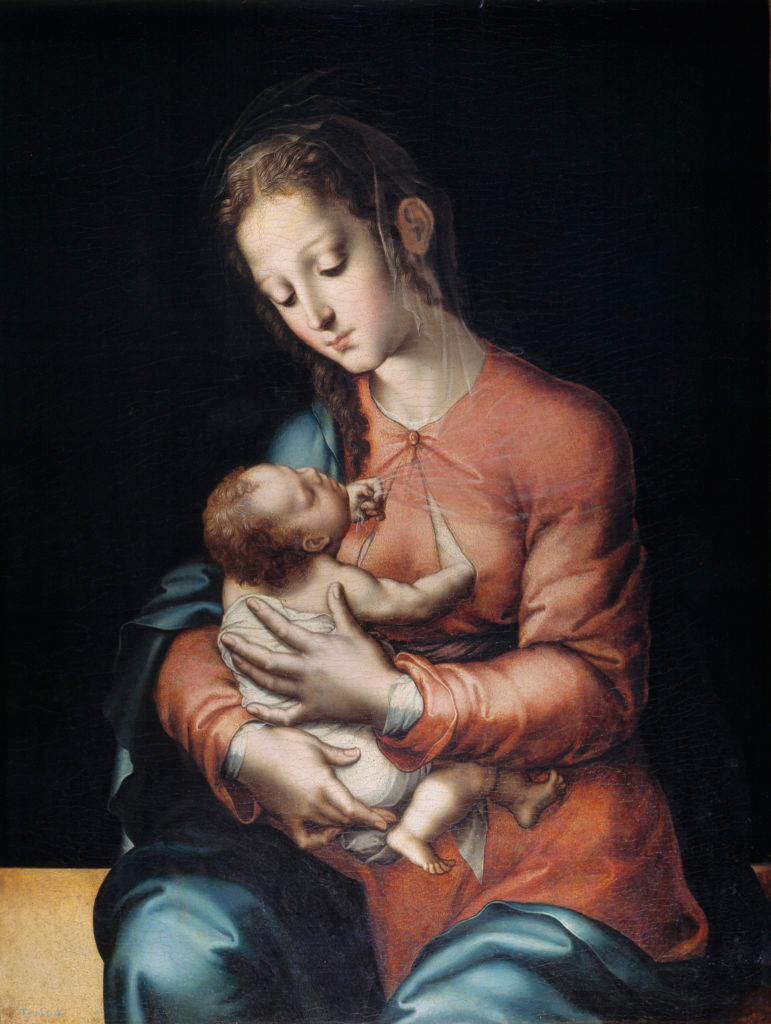
Spiritual Sunday
I can see why my good friend Sue Schmidt is “enthralled” with this e.e. cummings Christmas poem. Poets who attempt to describe spiritual mystery sometimes jolt us out of recognizable patterns in the hope that we can glimpse, for a moment, inexpressible transcendence. Disrupting recognizable patterns is cummings’s stock and trade.
The first line–“from spiraling ecstatically this”—captures our ecstasy at God’s incarnation in human form, spiraling like Dante’s ascension towards Paradiso. (With no starting point, the line seems to spiral upward to a final punctuated “this.”) The divine birth occurs in a “proud nowhere of earth’s most prodigious night,” having a time and a place but also being nowhere because it is transcends the mundane. (“In the world but not of it,” as Jesus puts it.) The newborn babe “blossoms,” and the hungry eyes that feast upon the manger scene—it takes a miracle to appease them—imagine kneeling before the Christ child.
Meanwhile, normal coordinates and realities–“time space doom dream”– break down in the face of this “perhapsless mystery of paradise.” While there should be no doubt, no “perhaps,” that God entered the world, the word is simultaneously presented and erased, a way of keeping the mystery both elusive (perhaps it happened) and definite (perhapsless). Cummings plays a similar game with “proud nowhere of earth’s most prodigious night.” It’s both there and it’s not.
There’s work to do as humans can be minds without souls: with nuclear weapons they can “blast some universe to might have been,and stop ten thousand stars.” The lack of spacing between “been” and “and stop” tightly links the potential destructive action with the consequences.
The blast cannot overcome “one heartbeat” of the Christ child, however, as love is more powerful than death. Mary’s quiet smile, meanwhile, will prevail over a “million questionings” or doubts. She privately expresses her spiraling secret ecstasy in the Magnificat—”My soul doth magnify the lord”–but it’s not so secret since all of creation sings it.
from spiraling ecstatically this proud nowhere of earth’s most prodigious night blossoms a newborn babe:around him,eyes — gifted with ever keener appetite than mere unmiracle can quite appease — humbly in their imagined bodies kneel (over time space doom dream while floats the whole perhapsless mystery of paradise) mind without soul may blast some universe to might have been,and stop ten thousand stars but not one heartbeat of this child;nor shall even prevail a million questionings against the silence of his mother’s smile — whose only secret all creation sings
Sue Schmidt’s response: Before posting this, I sent it to Sue to ask for additional ideas. As I did, she struggled with “perhapsless mystery”:
I interpreted nowhere as a miracle that happens in a nondescript place, not transcendent necessarily, but both can read well.
Perhapsless is a bit harder. Since Cummings says only a miracle can satisfy us, it seems it has to have happened. Therefore prehapsless would seem to mean without perhaps in a normal rendering. But could there be more? Certainly it is a mystery, so perhaps might open questions, perhaps it happened this way or perhaps it happened that way. (Mary is silent). But in the end what moves us is the mystery of it, and the power far greater than our basest inclinations and prodding questions.

